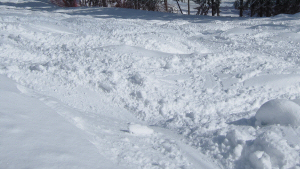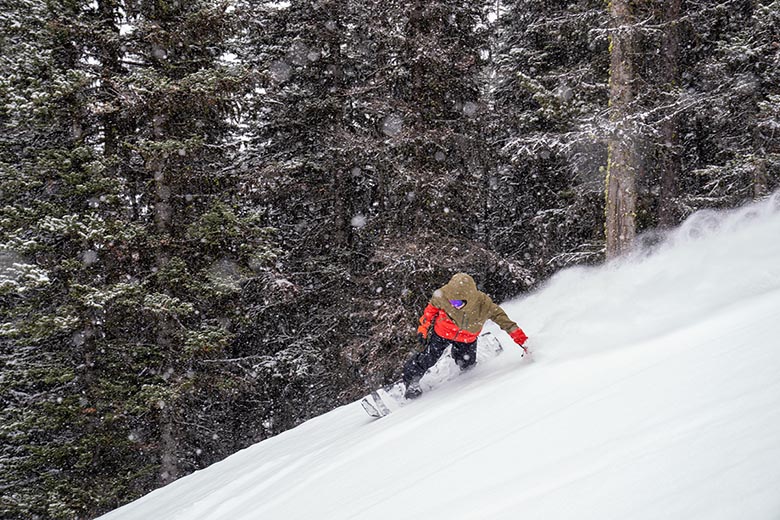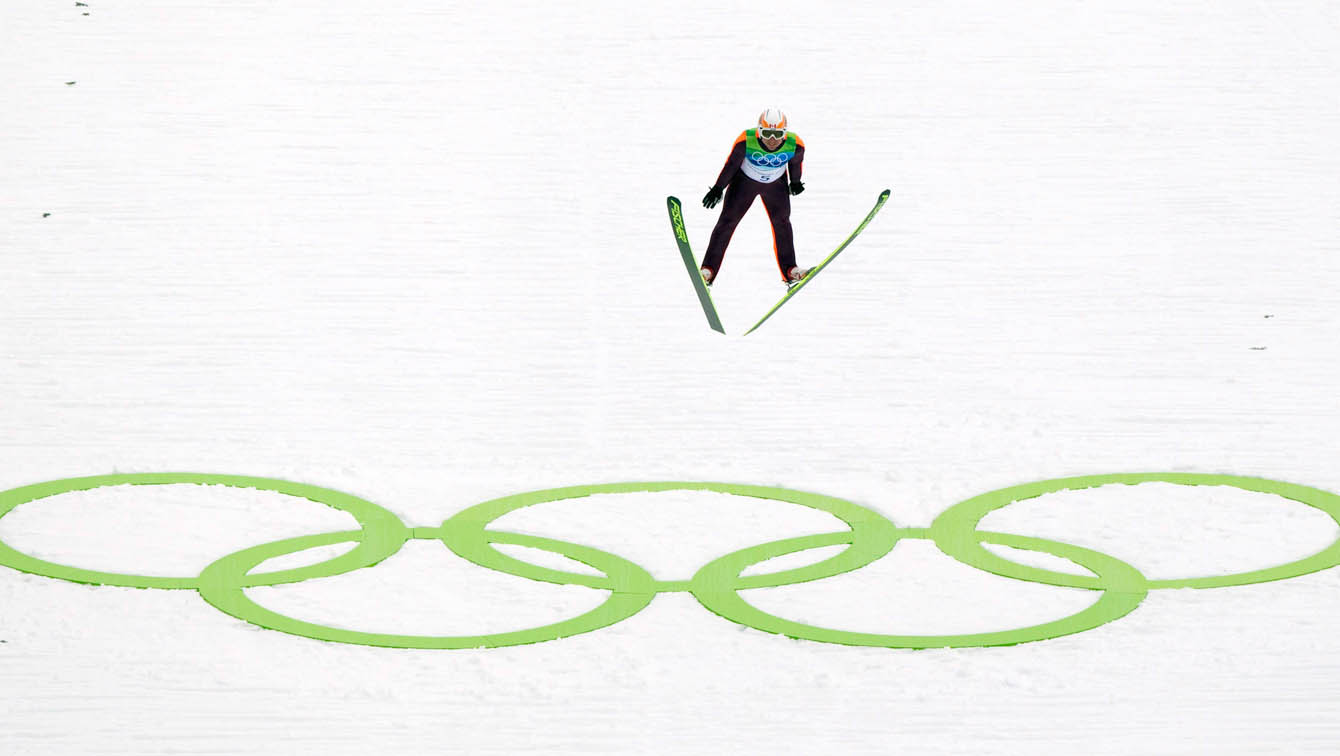
The Olympics, the Greek word meaning "summer" in Greek, is a gathering of athletes from around the globe every two years. The International Olympic Committee organises the competitions. It features events in track & field, swimming (gymnastics, boxing), weightlifting, triathlon, and synchronized divers. Each event has a winner who receives a medal. The second and third placers get silver and bronze.
Although the Olympics began as an event for a few athletes, they have grown to be a major sporting event that attracts more professional and amateur athletes. The Olympics' scope has expanded to include a variety demonstration and individual sports as well the Paralympic Games.
If they are interested in taking part in the olympics, athletes should be fit and able to train long hours. They should also be familiarized with the rules and regulations for their sport.

To qualify for the Olympics, you must perform at a particular level or place in an international competition. Competitors must be qualified by the national Olympic Committee for individual sports and must qualify for team sports through continental qualifying tournaments.
Nation may not be allowed to enter all athletes in all events. The NOC determines who is eligible for team sports based upon a list that has been created by IF based a number of athletes reaching a specific benchmark.
Softball, which has similar rules and formats to baseball, is one the most popular games at the summer Olympic Games. The sport enjoys a large fan base in the United States. It was also included in the 2008 and 2004 Summer Olympic Games.
The Olympic Games have been referred to as the most watched sporting event, with an audience of over 9 billion watching them on television. The media exposure is not the only reason the games are watched by millions. It also gives athletes the chance to become famous on a national and international level.

Many countries send teams to the Olympics as a way of expressing their national culture and identity. The popularity of the games has also led to controversy such as boycotts, bribery and doping.
Political controversy marred the 1968 Summer Olympics, Mexico City. To show their support for civil right, Tommie Smith from the United States and John Carlos from Australia, respectively, ran the 200m. Peter Norman, from Australia, finished second in the 200m. He wore a badge displaying his support for human rights.
China hosted the 2008 Summer Olympics. It hosted a record breaking event that saw more than 11,000 athletes representing 199 IOC members compete in Beijing. The Olympics proved to be a significant success for China's economy. They also helped cement China’s place on the global stage.
FAQ
Which countries are known for their best food?
Food varies from country to country. It is difficult to know which countries are best at cooking.
But, we can still tell you where the best cuisine is!
TripAdvisor users ranked these three countries as the top three:
-
Italy - Italy has been voted number 1 by TripAdvisor users for its amazing food.
-
France - France was second due to its rich culture.
-
Spain - Spain came 3rd due to its beautiful beaches, great weather, and wonderful people.
How long does it take between two countries to fly?
The distance between airports and weather conditions will affect the flight time.
The average flight time is approximately 3 hours.
However, the actual flying time depends on several factors such as the airline, the aircraft type, airport delays, and weather conditions.
Should I purchase travel insurance?
Travel insurance is important if your plans include adventure travel. You should ensure that you have coverage for all types and forms of adventure sports.
Skiers, for instance, should have adequate medical coverage. You should also think about getting coverage for theft loss and damage.
You should also consider buying cover for cancellation. This covers you from any possible penalties if you cancel your holiday.
Also, make sure you ask for insurance for emergency evacuation. This includes evacuation from the mountain in the case of an earthquake or other natural disaster.
How can I travel light?
There are no right or wrong answers when packing for a vacation. Here are some tips to help you decide what to pack.
-
Only take what you actually need.
-
Only bring what you are going to wear.
-
Don't buy too many.
-
Make sure you have room in your suitcase.
-
Double-check everything that you have packed.
-
Enjoy free storage
-
Reusable water bottles can be used instead of buying bottled.
-
Use a backpack to carry your stuff instead of a bag.
-
When possible, walk or cycle instead of taking public transport.
-
Choose the right size bag.
-
Avoid carrying heavy objects.
-
You should be prepared for every eventuality
-
Leave nothing behind.
Where can I store my luggage safely?
There are many options. The most common one is to use lockers at airports. These are typically located near the security zone. They can be purchased for between $5-10 per daily, depending upon the size of the locker.
Renting a storage unit is another option. These are often found outside large hotels or shopping centers. Some places offer discounts if multiple units are rented together. Prices can vary.
The third option is to rent a porter. A porter will help carry your luggage from the carousel to your room. For each porter you hire, you pay a small amount.
What documents should I have with me while traveling?
You can always access important documents while you are on the road by keeping copies at home. Keep a backup of your passport and driver's licence, as well as any credit card information, if you intend to use an ATM.
It's always a good idea for you to have a photocopy with you of your passport in case you need it.
Do not forget to include copies and reservation confirmations. These will help you to remember where you are and what you want to see.
Keep a copy of the flight ticket and details for your hotel reservations. You can contact your family back home easily if you are in trouble.
You should never leave valuables behind. You can keep your valuables safe by keeping them in your wallet or inside your bag.
To avoid costly items being lost, make sure you check your luggage before you leave.
Remember that it is always safer to be simple than to plan everything.
Relax and enjoy your trip!
How can I make travel more enjoyable?
Traveling shouldn't be just about getting to one destination from another. It should include all the experiences along your journey.
The app "Traveler" was created to help you plan your trip and create itineraries based upon your interests.
We are working on additional features like booking hotels and flights, renting cars, etc.
The idea behind this project was to create a simple travel planning tool for people who want to experience more while they're away.
Statistics
- Pack sweaters, jackets, and underwear in reusable compression bags creating up to 75% more space in your luggage. (wikihow.com)
- That's an 18% jump from 2019, the previous record year. (travelandleisure.com)
- Alcoholic beverages with 24% alcohol or less are not subject to limitations in checked bags. (tsa.gov)
- Alcoholic beverages with more than 24% but not more than 70% alcohol are limited in checked bags to 5 liters (1.3 gallons) per passenger and must be in unopened retail packaging. (tsa.gov)
- They're also likely to offer babysitting services, in case you'd like to have dinner one night after 7 p.m. (travelandleisure.com)
External Links
How To
How to plan your next getaway
Planning a trip involves many things like booking flights, hotels, car rentals, activities, etc. It includes important considerations such a budget, destination, weather forecast, time frame, etc.
These are important points to remember when planning your next vacation.
We've created a step by step guide to help you plan your next holiday. This guide was compiled based upon customer feedback and experience. We hope you find this guide helpful and easy to follow when planning your next vacation.
Steps:
-
Your Budget is an important step in planning your trip. Before you start to think about where to go or what to do, it is important to determine how much money you have available for your trip. You might have to cancel your plans if you don't have enough money.
-
Book Your Flights - After determining your budget, the first thing you should do is book your tickets. You should ensure that you get the best deal possible at the lowest price. In addition, make sure you check whether there are any special offers for certain seasons. These deals could be a great way to save money.
-
Pick Your Destination. Once you've booked your tickets, the next step is to decide where to travel. Numerous factors go into choosing your destination.
-
Find Accommodations. After selecting your destination, the next step is to search for accommodations. There are many choices for accommodation. You can choose from affordable hostels or luxury suites. The type of accommodation you choose will depend on your preferences and needs. For example, staying in a hotel may not be ideal if you're looking for a place close to the city center. You may prefer quieter areas away from the crowds and a homestay could be better suited for your needs.
-
Select Activities & Attractions - After selecting your accommodation, now is the time to select the activities and attractions you wish to include in your itinerary. Depending on the length of your stay, you can either choose only a few activities or add several new ones throughout your trip.
-
You can now determine your schedule. A fixed schedule will ensure that you get the best value for your trip. However, if you're free to move around at your convenience, you can enjoy your trip even more.
-
Create an Itinerary - An itinerary is a list of all information related to your trip. It is important to write down everything you need, from accommodation to meals, to activities to restaurants, and to create a list.
-
Research Online – Before you go on your trip, make sure to research online. Find out what other travelers have to say about different destinations by reading reviews and testimonials. This will help you plan.
-
Be Light - Don't pack too much. This is the biggest mistake people make when packing. Avoid bringing more than three sets of clothes. Bring clothing appropriate for the weather you're visiting.
-
Make sure you are prepared - Before you leave for your trip, make sure that everything is in order. You don't want to waste time searching for important documents while you're still in transit.